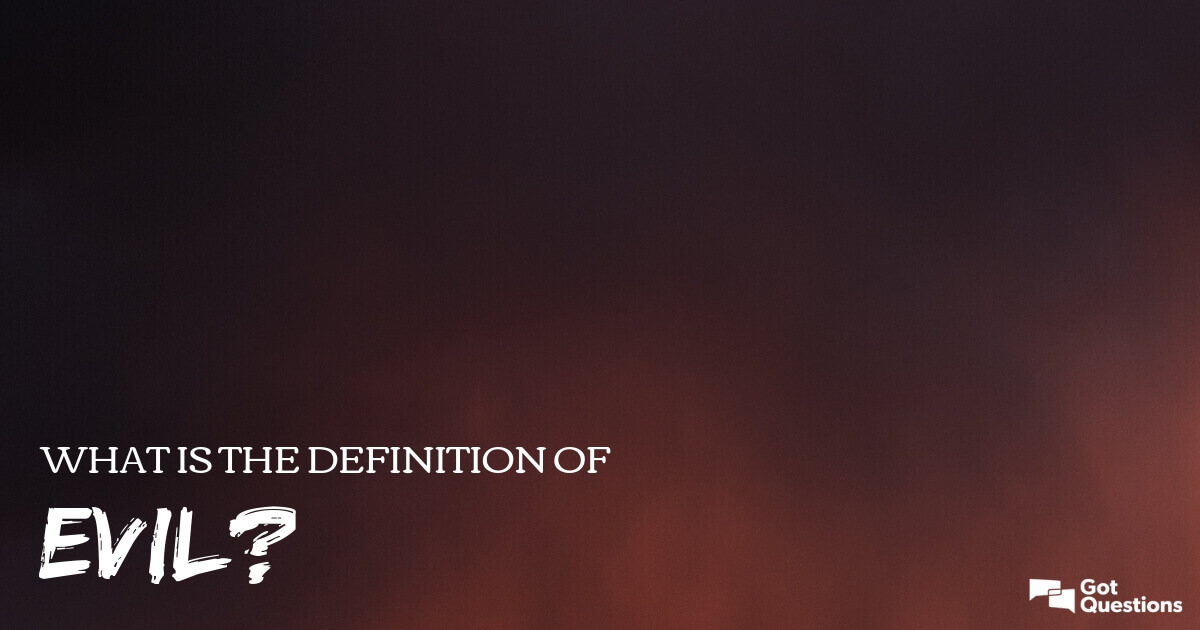A few threads have focused lately on what is evil. I dont often refer to “got questions”, but the below is a good read:
Evil is usually thought of as that which is morally wrong, sinful, or wicked; however, the word evil can also refer to anything that causes harm, with or without the moral dimension. The word is used both ways in the Bible. Anything that contradicts the holy nature of God is evil (see Psalm 51:4). On the flip side, any disaster, tragedy, or calamity can also be called an “evil” (see 1 Kings 17:20, KJV).
Evil behavior includes sin committed against other people (murder, theft, adultery) and evil committed against God (unbelief, idolatry, blasphemy). From the disobedience in the Garden of Eden (Genesis 2:9) to the wickedness of Babylon the Great (Revelation 18:2), the Bible speaks of the fact of evil, and man is held responsible for the evil he commits: “The one who sins is the one who will die” (Ezekiel 18:20).
Essentially, evil is a lack of goodness. Moral evil is not a physical thing; it is a lack or privation of a good thing. As Christian philosopher J. P. Moreland has noted, “Evil is a lack of goodness. It is goodness spoiled. You can have good without evil, but you cannot have evil without good.” Or as Christian apologist Greg Koukl has said, “Human freedom was used in such a way as to diminish goodness in the world, and that diminution, that lack of goodness, that is what we call evil.”

Evil is usually thought of as that which is morally wrong, sinful, or wicked; however, the word evil can also refer to anything that causes harm, with or without the moral dimension. The word is used both ways in the Bible. Anything that contradicts the holy nature of God is evil (see Psalm 51:4). On the flip side, any disaster, tragedy, or calamity can also be called an “evil” (see 1 Kings 17:20, KJV).
Evil behavior includes sin committed against other people (murder, theft, adultery) and evil committed against God (unbelief, idolatry, blasphemy). From the disobedience in the Garden of Eden (Genesis 2:9) to the wickedness of Babylon the Great (Revelation 18:2), the Bible speaks of the fact of evil, and man is held responsible for the evil he commits: “The one who sins is the one who will die” (Ezekiel 18:20).
Essentially, evil is a lack of goodness. Moral evil is not a physical thing; it is a lack or privation of a good thing. As Christian philosopher J. P. Moreland has noted, “Evil is a lack of goodness. It is goodness spoiled. You can have good without evil, but you cannot have evil without good.” Or as Christian apologist Greg Koukl has said, “Human freedom was used in such a way as to diminish goodness in the world, and that diminution, that lack of goodness, that is what we call evil.”

What is the definition of evil? | GotQuestions.org
What is the definition of evil? What does the Bible say about evil? Does evil exist?
www.gotquestions.org


